- DETERRENCE: Navy in 2014: Undersea Drones, Arctic, Marines on New Ships, Chief of Naval Operations Discusses his To-Do List
- DPRK: Report of the Commission of Inquiry on Human Rights in the Republic of Korea
- ENERGY SECURITY: Climate Change is Here Now and it Could Lead to Global Conflict
- GOVERNANCE AND CIVIL SOCIETY: Umbrella Union Holds Protest Rally in Downtown Seoul
- CLIMATE CHANGE ADAPTATION: Moving Stories: the Voices of People who Move in the Context of Environmental Change
- CLIMATE CHANGE AND SECURITY: High Seas Need International Police Force, says Former UK Foreign Secretary
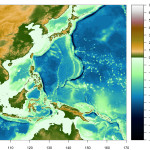
 DETERRENCE: Navy in 2014: Undersea Drones, Arctic, Marines on New Ships, Chief of Naval Operations Discusses his To-Do List, Jeanette Steele, U-T San Diego (1 February 2014)
DETERRENCE: Navy in 2014: Undersea Drones, Arctic, Marines on New Ships, Chief of Naval Operations Discusses his To-Do List, Jeanette Steele, U-T San Diego (1 February 2014)
To do #2: Undersea unmanned vehicles: We can’t be everywhere in the world we want with $2 billion submarines. We can get under-ocean intelligence, surveillance and reconnaissance with something that costs tens of millions. But US battery technology is not cutting edge.
- Inside the Navy’s Next Air War, Dave Majumdar and Sam LaGrone, USNI News (23 January 2014)
- Top Admiral Outlines Future of at-sea Information-Sharing, Navy Times (28 January 2014)
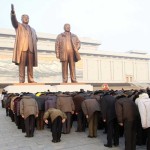 DPRK: Report of the Commission of Inquiry on Human Rights in the Republic of Korea, Office of the High Commissioner for Human Rights (17 Feb 2014)
DPRK: Report of the Commission of Inquiry on Human Rights in the Republic of Korea, Office of the High Commissioner for Human Rights (17 Feb 2014)
The United Nations Commission of Inquiry documented evidence against North Korea in nine specific areas. However, it also listed several practical steps for engaging North Korea. North Korea rejected the report. China denounced the process, but did not reflexively defend North Korea. China sent two delegations to DPRK in rapid succession; probably to assess conditions as well as possibly inform DPRK of U.S. proposals. A U.S. private delegation visited North Korea indicating some channels have a bit of life.
- A carefully planned path for moderating tensions on Korean Peninsula, Xiao Tan, Huanqiu Global Times Opinion (18 February 2014) [Chinese-language]
- Chinese delegation to Pyongyang seen as effort to assess stability of Kim’s regime, Teddy Ng, South China Morning Post (14 February 2014)
- North Korea rescinds invitation to U.S. envoy, Hyung-jin Kim, Associated Press (10 February 2014)
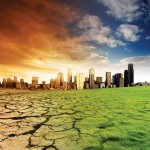
 ENERGY SECURITY: Climate Change is Here Now and it Could Lead to Global Conflict, Nicholas Stern, Guardian (14 February 2014)
ENERGY SECURITY: Climate Change is Here Now and it Could Lead to Global Conflict, Nicholas Stern, Guardian (14 February 2014)
Bob Solow once said of Milton Friedman, “Everything reminds Milton of money. Everything reminds me of sex, but I keep it out of the paper.” Everything – floods to fires, from up in the British Isles to Down Under – reminds Baron Stern of climate change; after all, talking about climate change is money to himself. John Kerry, a billionaire public servant, ignores Chinese sabre-rattling and piously recites climate change mantra. Neither St. Nicholas nor St. John will deliver salvation.
- Fires show climate change is real: Stern, Julian Drape, AAP London, The Australian (15 February 2014)
- America’s Asia policy up in smoke: As China flexes its muscle, John Kerry Talks Volcanoes and Climate Change, Michael Auslin, Wall Street Journal (20 February 2014)

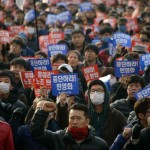 GOVERNANCE AND CIVIL SOCIETY: Umbrella Union Holds Protest Rally in Downtown Seoul, Yonhap News Agency (26 February 2014)
GOVERNANCE AND CIVIL SOCIETY: Umbrella Union Holds Protest Rally in Downtown Seoul, Yonhap News Agency (26 February 2014)
Thousands of demonstrators took to the streets in Seoul, protesting alleged interference in last year’s presidential election and a perceived government push to privatize public firms. Amnesty International sent a letter to the ROK for human rights violations, particularly regarding its National Security Law and treatment of organized labor. Park’s approval ratings are high, however, on the back of successful inter-Korean family reunions.
- Amnesty sends Pres. Park a letter over human rights, Song Ho-kyun and Kim Hyo-jin, Hankyoreh (25 February 2014)
- Park’s approval ratings stay high, Joongang Ilbo (25 February 2014)

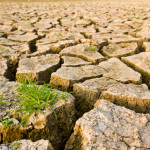 CLIMATE CHANGE ADAPTATION: Moving Stories: the Voices of People who Move in the Context of Environmental Change, Alex Randall, Jo Salsbury and Zach White, The Climate Outreach and Information Network (2014) [9.57 MB, PDF]
CLIMATE CHANGE ADAPTATION: Moving Stories: the Voices of People who Move in the Context of Environmental Change, Alex Randall, Jo Salsbury and Zach White, The Climate Outreach and Information Network (2014) [9.57 MB, PDF]
‘Moving Stories’ demonstrate the reality of migration and environmental change. A number of stories illustrate how people have used moving seasonally and temporarily, rather than permanently, as a way of adapting to changing environmental conditions. Several stories show that remittances from other migrants have increased the resilience of people affected by disasters.
- Addressing Climate Change and Migration in Asia and the Pacific, Asian Development Bank (2012)
- Climate Change, Vulnerability and Human Mobility, Tamer Afifi, Radha Govil, Patrick Sakdapolrak and Koko Warner, Institute for Environment and Human Security, United Nations University (2012)
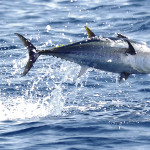 CLIMATE CHANGE AND SECURITY: High Seas Need International Police Force, says Former UK Foreign Secretary, Suzanne Goldenberg, The Guardian (26 February 2014)
CLIMATE CHANGE AND SECURITY: High Seas Need International Police Force, says Former UK Foreign Secretary, Suzanne Goldenberg, The Guardian (26 February 2014)
Overfishing + global warming = militarisation of fish conservation? Climate–security pathways are manifold, and sometimes direct. Just as “policing assistance” is occasionally bruited as a necessary condition for REDD+ rainforest schemes to succeed, the inevitable has happened on the other side of the equation. News of the NSA protecting US interests in climate change negotiations both confirms the climate–security linkage and screws it tighter by corroding trust.
- For the NSA, espionage was a means to strengthen the US position in climate negotiations, Sebastian Gjerding, Anton Geist, Henrik Moltke and Laura Poitras, Information (30 January 2014)
- Kerry Implores Indonesia on Climate Change Peril, Michael R. Gordon and Coral Davenport, New York Times (16 February 2014)
- Safeguarding the Future of REDD+: Indonesia Risk Assessment, Transparency International Indonesia, (25 November 2013)
The Nautilus Peace and Security Weekly Report presents articles and full length reports each week in six categories: Austral security, nuclear deterrence, energy security, climate change and security, the DPRK, climate change adaptation and governance and civil society. Our team of contributors carefully select items that highlight the links between these themes and the three regions in which our offices are found—North America, Northeast Asia, and the Austral-Asia region.
- Subscribe to NAPSNet to receive free weekly email reports editor:
Contributors:
- Deterrence: Peter Hayes
- Governance and Civil Society: Dyana Mardon
- Energy Security: Nikhil Desai
- Climate Change Adaptation: Saleem Janjua
- DPRK: Roger Cavazos
- Climate Change and Security: Richard Tanter

